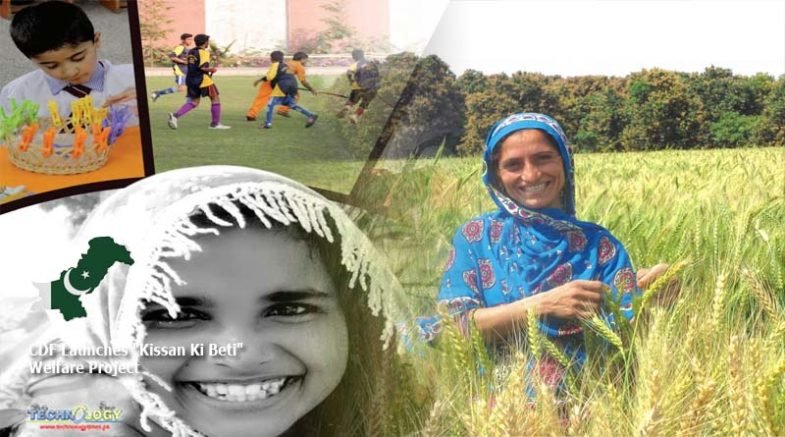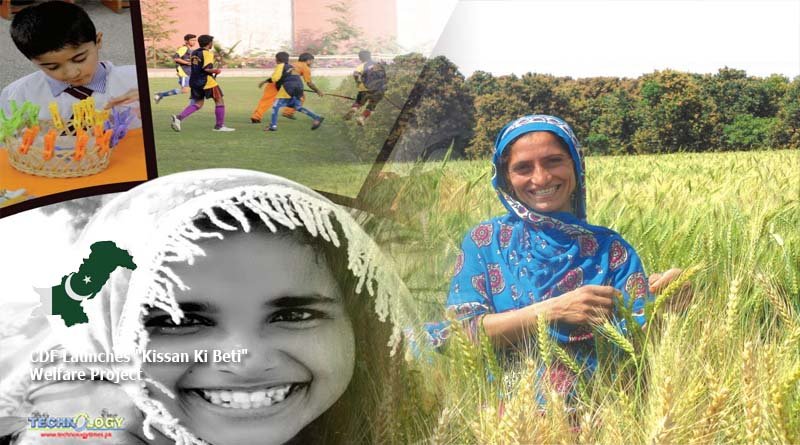Community Development Foundation CDF launched a welfare project with the collaboration of major partners including Shahid Javed Burki Institute of Public Policy (BIPP), Women Economic Development Initiative Punjab (WEDIP), Women Development Department (WDD) Govt of Punjab, Dukhtran-e Pakistan, Agri Byt, All Pakistan Kissan Ittehad, Center for Security and Disaster Management.

Skills and knowledge are the engines of economic growth and social development of any country. Kisan Ki Beti (KKB) program is the best example as a value-added product to produce the best results in rural areas of Punjab with a special focus on farmers’ daughters.
welfare project’s core teams have collected ground information under the set framework with timelines in which they found major gaps and deficiencies for this segment of society which are unable to speak only because of the profession of their father or bounding from the forefathers to face a lot of social and cultural barriers, in result a large number of women youth sitting at home, having no skills, not much educated and not even secure for their marriages as well.
The pilot project will be implemented from September 2020 to December 2020 in three major districts like Toba Tek Singh, Sahiwal and Jhang. The first phase from January 2021 to December 2021 in 20 districts and will be handled by Community Development Foundation CDF, Shahid Javed Burki Institute of Public Policy at Netsol (BIPP) and other valuable partners locally and nationally across Pakistan.
The welfare project is to communicate information about effective business education programs related to enterprise development and make possible efforts as starter ups daughters of Farmers.
The areas of intervention of the upcoming project are located in 20 Districts of Punjab Pakistan, with the target of 15000 families and more than 30000 young females living in rural areas, often in conditions of poverty and vulnerability, with low or no possibility to afford
Education, entrepreneurship programs along with safety and security for their selves and their families.
Major aim of the project is to improve the living standards of rural women through skill development training, business competences, entrepreneurs, education, and support to protect their rights and make them secure. The idea behind this project is to drive the Sustainable Development Goals agenda 2030 for empowering rural women by enhancing their livelihoods and promotion of local selected brands. To set-up, a platform for rural women to earn in four ways: (1) earning through certified vocational courses (2) selling their own local brands as entrepreneurs (3) link them with local markets (4) providing access to online selling especially Agriculture based products and engage them in agriculture activities like farm-fresh supply, sustainable food supply, kitchen gardening and organic cosmetology.
Originally published at Pakistantoday
